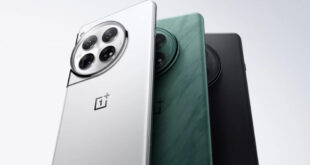
Neither public markets nor tech giants offered any solace in 2016 for the ever-growing list of private unicorns. There are 180 tech companies circling the runway with valuations over $1 billion, the most in history. While interest in an all-expenses paid trip to the NYSE valuation guillotine was at an all-time low, non-traditional Fortune 500 companies did pluck a lucky few from the skies at very serious valuations. Moving into 2017, there’s little indication that trend is going to do anything but accelerate, especially given that every company is now essentially a software company.
First came the venture arms, then came the open source projects — now Fortune 500 companies are starting to embrace the idea of fully acquiring very mature tech startups. Walmart’s $3 billion acquisition of Jet.com in August gave hope to unicorn founders that big wins aren’t merely a relic of the past. Continuing into November, the insurance, automotive and consumer goods industries all showed a preference for tech, according to a new report from CB Insights.
Data is limited because billion plus dollar acquisitions aren’t really a commonplace occurrence, but it’s safe to say that the aforementioned acquisitions generally fall into two categories. Most commonly, traditional players are looking to access new demographics.
This was the case with Jet, Dollar Shave Club and to some extent SquareTrade. Walmart’s ecommerce business has been eaten alive by Amazon in recent years, Unilever is getting cornered by a streamlined competitor preaching convenience and Allstate is struggling to get its message across to a millennial generation that has only previously bought insurance for their smartphones.
On the other side of the spectrum, some companies, particularly in the automotive sector, are just struggling to keep up. The shift to electric and autonomous vehicles is occurring at roughly the same time, and it is proving to be a challenge for traditional manufacturers.
While most of us were not paying attention, major automakers relocated their research and development centers to Silicon Valley and swung out venture arms to start brushing elbows with software engineers.
As software continues to eat its way through the world, companies like General Motors have realized that cold hard cash for acquisitions may be the most efficient means of playing catchup. This comes as mere startups, like Uber, have reached valuations that have surpassed legacy automakers like GM.
If 2017 holds to expectations, we will see a greater number of tech IPOs and acquisitions, particularly from non-traditional buyers. It wouldn’t be hard to imagine a startup like Quanergy Systems, that builds LiDAR technology, being acquired by an automotive parts manufacturer looking to cut the corner on innovation like Delphi Automotive. It also wouldn’t surprise me if a strong brand like The Honest Company got picked up by Proctor Gamble or if a major retailer like Target acquired Fanatics.
This is to say nothing of the myriad of acquisitions of tech companies with valuations under $1 billion, increasing MA activity of international companies, and the potential for Trump to add fuel to the fire with lower taxes and reduced regulatory oversight.

Featured Image: Bryce Durbin
 #Bizwhiznetwork.com Innovation ΛI |Technology News
#Bizwhiznetwork.com Innovation ΛI |Technology News



